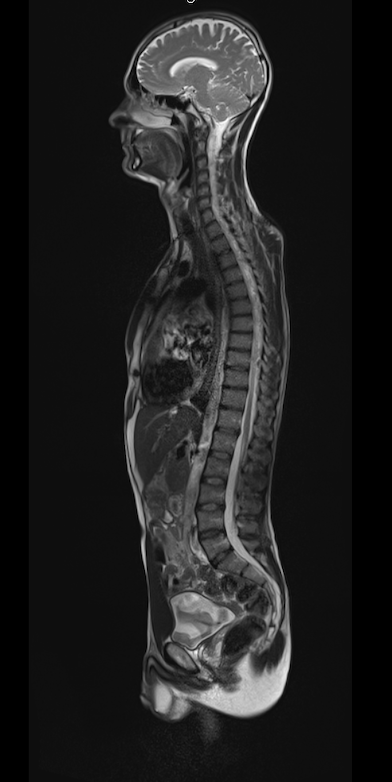
MRI, or magnetic resonance imaging, is an imaging tool that uses magnets and radio waves to evaluate your body and creates detailed images of your anatomy. It does not use any radiation like those used to perform CT or Xray scans. The first scanner was created in 1977, and the technology behind MRI scanners is rapidly improving in both speed and in imaging accuracy.
We use whole body MRI imaging to help screen people for underlying signs of disease like tumors or cancers before they have any symptoms of underlying disease. If cancer is found at an early stage, it is typically much easier to treat than advanced cancer that has spread and is causing symptoms like pain or weight loss. My goal is to help people understand their health on a deep level in order to preserve their good health for as long as possible. MRI is one of the tools we use to help ensure you don’t have any underlying signs of disease that could prevent you from living a long and healthy life.

As you can see from this image, a whole body MRI scans your body from head to mid-thigh, and includes your head, neck, chest, abdomen, and pelvis. We do not use any contrast, and the scan is performed in about 50 minutes. To make you more comfortable, you are able to choose music and listen to your favorite songs during the scan. Most of my patients are surprised how comfortable and easy the whole body MRI scan is to undergo.
Whole body MRI is excellent at screening your solid organs like your brain, pancreas, liver, kidneys, spleen, lymph nodes, and your uterus or prostate gland for evidence of masses or other abnormalities. MRI scanning should not replace your other screening tests like your colonoscopy, mammogram, or pap smear. If you have a history of smoking, H.Pylori infection or gastric discomfort, or have a strong family history of cancer, you may also need additional screening tests to evaluate your risk of cancer. For many people, whole body MRI is a powerful tool that can give you in-depth information about your risk of underlying cancer.

I believe the future of physical exams will include a whole body MRI to look for early signs of cancer. If the technology exists now, I believe people deserve to have access to this innovative imaging today. If you want to know more about your health and are ready to learn about your risk of cancer with a whole body MRI, click on our “Book Now” page to schedule your whole body MRI or your free consultation with me today!
Comentarios